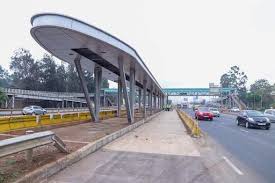
Parliamentarians are considering reforms to strip financiers of the power to select who consults on and undertakes projects financed by their loans.
If approved, it would be a major reform in the state tender process.
The move would be a radical shift from the current system whereby lenders issuing loans also influence which contractor undertakes the projects and others consulting and conducting feasibility studies.
At the centre of this push is the controversy over financing the $60 million (Sh7.74 billion) Bus Rapid Transport (BRT) along the Outering Road in Nairobi.
The Kenyan and South Korean governments entered into an agreement stipulating that, only South Korean companies or entities registered in South Korea are eligible to bid for consultancy and implementation.
However, a group of MPs is objecting and wants the decision by a lender to select implementers to be restricted only to grants and not loans.
Senior legal counsel and Rarieda MP Otiende Amolo and members of the Public Accounts Committee have raised constitutional concerns.
They argue the clause excludes Kenyan taxpayers, who will ultimately repay the loan, from benefiting from the project.
“This is outright discrimination and explicitly unconstitutional. You cannot negotiate a contract to be paid by the very people who are now excluded from benefiting from it,” the Rarieda lawmaker said.
Speaking during a committee progress update on the BRT plan, he said the agreement’s restrictive bidding clause undermines Kenya’s procurement laws and constitutional provisions against discrimination.
He says that Section 42 of the Public Procurement and Disposal Act, 2015, provides exemptions for bilateral or multilateral agreements, but such exemptions should not violate constitutional principles.
The major infrastructure project aimed at improving public transport- the Bus Rapid Transit line-has been facing significant delays and legal controversies.
They have raised concerns about its timely completion and compliance with national procurement laws.
Roads and Transport PS Joseph Mbugua, however, defended the agreement, saying concessional loans often come with conditions set by the donor country.
“Concessional loans, which offer low-interest rates and long repayment periods, typically include concessions such as requiring the donor country’s companies to execute the project,” Mbugua told the Public Accounts Committee.
“These conditions are part of the trade-off for accessing affordable credit,” he told the panel chaired by Butere MP Tindi Mwale.
Committee members have called for a renegotiation of the financing agreement to remove the discriminatory clause and ensure compliance with Kenyan laws.
Lugari lawmaker Nabii Nabwera demanded greater transparency in the procurement process.
“The fundamental issue
here is fairness to Kenyan companies and taxpayers. We
cannot continue to accept loans that exclude our people
from participating in projects they will ultimately pay
for,” Nabwera said.










